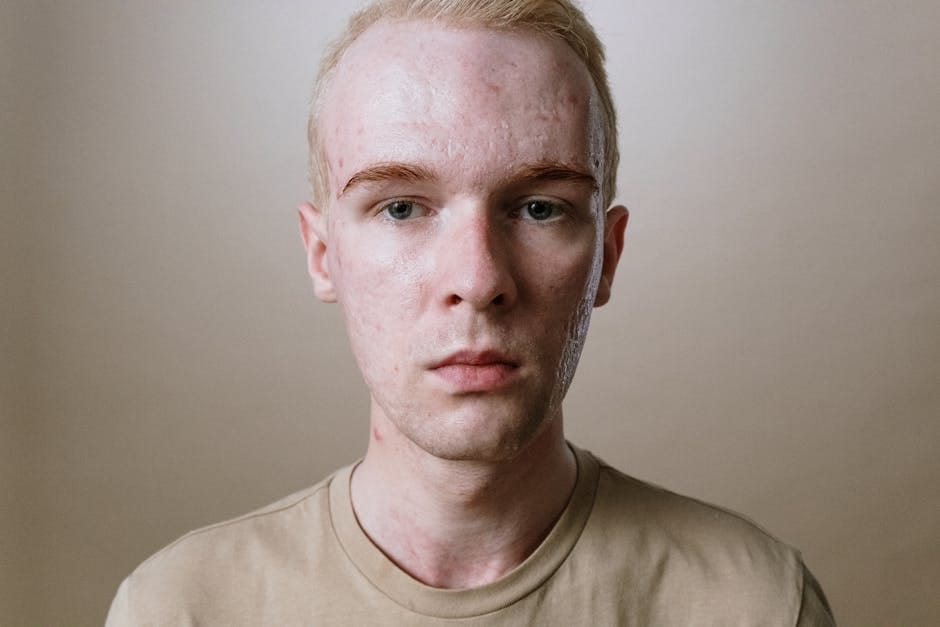Acne, a common skin condition that affects millions of people worldwide, can be a frustrating and embarrassing problem. The good news is that there are effective ways to treat and cure acne, leaving you with clear and healthy skin. This comprehensive guide will delve into the causes, types, and proven treatments for acne, empowering you with the knowledge and tools to achieve a blemish-free complexion.
**Understanding Acne: Causes and Types**
Acne is caused by a combination of factors, including hormonal changes, excess sebum production, and bacteria. When sebaceous glands produce too much oil, it can clog hair follicles, creating a fertile ground for bacteria to thrive. The bacteria then trigger inflammation, leading to the formation of pimples, blackheads, and whiteheads.
There are several types of acne, ranging from mild to severe:
* **Non-inflammatory acne:** Includes blackheads (open comedones) and whiteheads (closed comedones).
* **Inflammatory acne:** Involves papules (small, red bumps), pustules (papules with pus), nodules (painful, deep bumps), and cysts (large, pus-filled lesions).
**Effective Acne Treatments: A Multi-Faceted Approach**
Treating acne effectively requires a multi-faceted approach, combining topical treatments, oral medications, and lifestyle changes.
**Topical Treatments:**
* **Benzoyl peroxide:** Kills bacteria and reduces inflammation.
* **Salicylic acid:** Exfoliates dead skin cells and unclogs pores.
* **Retinoids:** Derived from vitamin A, helps regulate oil production and unclog pores.
* **Azelaic acid:** Has antibacterial and anti-inflammatory properties.
**Oral Medications:**
* **Antibiotics:** Kill bacteria and reduce inflammation.
* **Birth control pills:** Regulate hormonal imbalances.
* **Isotretinoin:** A powerful medication for severe acne, but with potential side effects.
**Lifestyle Changes:**
* **Wash your face twice a day:** Use a gentle cleanser and lukewarm water. Avoid harsh soaps and scrubs.
* **Moisturize:** Use a non-comedogenic moisturizer to keep skin hydrated without clogging pores.
* **Avoid touching your face:** Bacteria can transfer from your hands to your face, causing breakouts.
* **Manage stress:** Stress can trigger hormonal imbalances that contribute to acne.
* **Get enough sleep:** Sleep deprivation can worsen acne.
* **Consider a healthy diet:** Some studies suggest that certain foods, such as dairy and sugary drinks, may worsen acne.
**Prevention is Key**
While some factors contributing to acne are beyond our control, there are preventive measures you can take:
* **Cleanse your skin regularly.**
* **Use non-comedogenic products.**
* **Protect your skin from the sun.**
* **Manage stress levels.**
* **Eat a healthy diet.**
**When to See a Dermatologist**
If over-the-counter treatments and lifestyle changes prove ineffective, it's essential to consult with a dermatologist. They can prescribe stronger medications, perform procedures such as extractions or laser treatments, and provide personalized guidance.
**Conclusion**
Curing acne requires patience and consistency. By following the treatments and lifestyle modifications outlined in this guide, you can effectively manage and prevent breakouts, achieving clear, healthy skin that boosts your confidence and well-being. Remember, every individual's skin is unique, so it's crucial to seek professional advice if you're struggling with persistent acne. With the right approach, you can banish breakouts and embrace a life free from the burden of acne.

